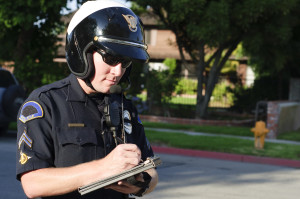Acting Attorney General John Hoffman recently issued a directive regarding the use of body worn cameras (BWCs) by New Jersey law enforcement officers. While the decision to acquire body cameras is left to individual police departments and municipalities, the directive establishes foundational requirements for those entities that decide to deploy the equipment.
Police Camera Best Practices
As detailed in a fact sheet accompanying the Attorney General’s directive, below are several key policies and procedures that municipalities must follow:
- Activation: Body cameras must be activated in certain situations, including traffic stops, witness interviews, custodial interrogations, protective frisks, searches and arrests. Body cameras must also be operational during deadly force incidents and related on-scene investigations.
- De-activation: Body cameras are prohibited from being used where it would expose an undercover officer or confidential informant. The policy also imposes strict requirements on recording in a private home, school, hospital or place of worship unless responding to a crime or emergency.
- Disclosure: Police departments must take reasonable steps to inform the public that they are using body cameras and officers must be truthful if asked if they are using a body camera. If an officer activates a camera in a person’s home or when interacting with a crime victim anywhere, the officer must tell the person about the camera. An officer may de-activate a camera if needed to secure cooperation from a person who requests it, but must document the reasons.
- Retention and Logging: Police departments must adopt systems to ensure secure retention of camera footage; to prevent tampering or deletion; to restrict access to appropriate persons and purposes; and to document all instances when footage is accessed.
The policy also makes it clear that municipalities and police departments are expressly authorized to “impose additional requirements beyond — but not inconsistent with —those established by the Attorney General.”
Body-Worn Camera Assistance Program
Under legislation that took effect earlier this summer, new patrol cars purchased by local municipalities must be equipped with mobile video recording systems. According to a press statement by the Office of the Governor, many police departments are expected to elect to acquire body cameras instead of dashboard cameras.
To avoid the prohibition against unfunded mandates, the New Jersey police camera law also increased the surcharge imposed on individuals convicted of driving while intoxicated. The additional $25 surcharge is payable to the State, county, or municipal entity that issued the summons, which must then use the funds to offset the costs of equipping police vehicles with mobile video recording systems.
To further defray the costs, the Acting Attorney General also announced a grant program to provide funding for local police departments to acquire body cameras. Police departments can apply for body camera assistance through their county prosecutors and will be eligible for an offset of up to $500 for each body camera or camera “package,” including body camera and related equipment.
For more information about the police camera directive or the legal issues involved, we encourage you to contact a member of Scarinci Hollenbeck’s Government Law Group.

